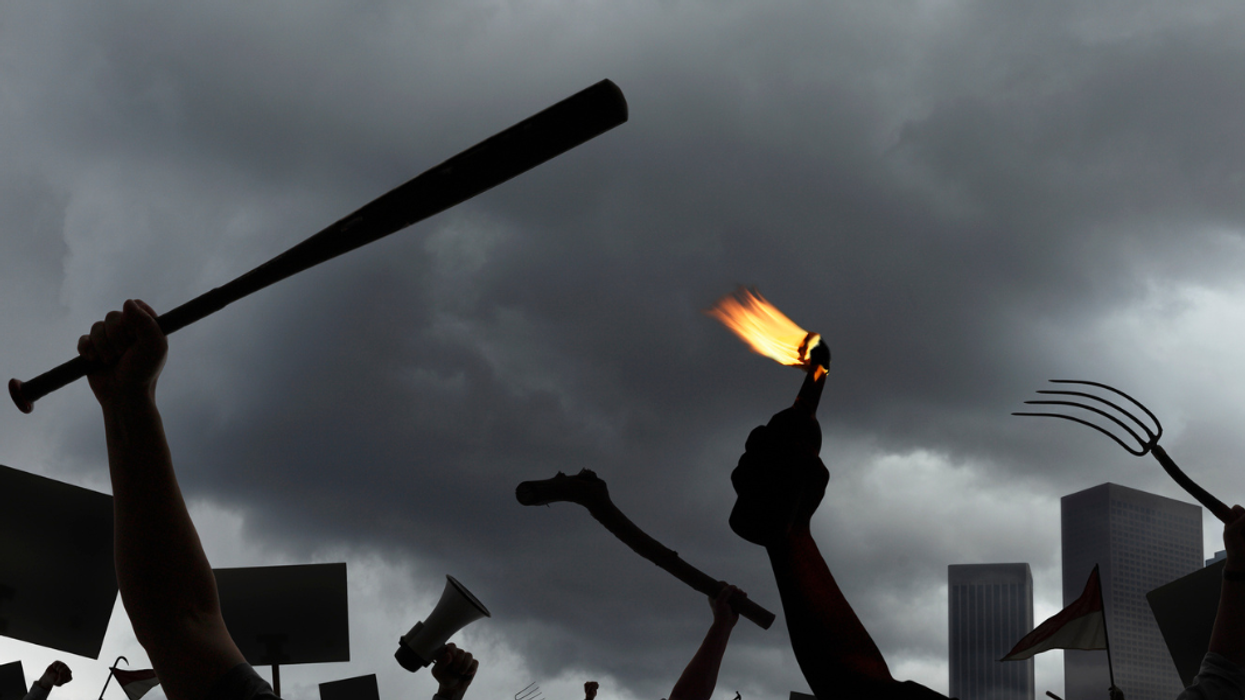Daniel O. Jamison is a retired attorney.
A Rebellion looms. Too many Americans have the attitude that if they cannot accomplish their aims lawfully and peaceably, they will resort to violence. This attitude apparently traces to Reconstruction when the organizers of the defunct Confederacy determined to regain the political power of their states, using lawful and peaceful means if they worked, but unlawful and violent means if necessary. With savage violence, they “redeemed” the South, ousting integrated state governments and denying equal rights to Blacks.
How can rebellion in the future be stopped?
A remedy for a lawfully elected rogue president who disregards the Constitution is impeachment and conviction in Congress, but only if enough responsible legislators are elected who would vote for both. If convicted, this president could refuse to step down. If supporters block civil authorities from removing this president, the military, under its oath to the Constitution, would presumably seek the removal. Given its long history as the ultimate protector of that Constitution, the military would likely overcome any dissent in its ranks.
The ousted president’s chosen vice-president might also “suspend” the Constitution, necessitating another impeachment and potentially the elevation of the Speaker of the House to the presidency.
Another remedy is the 25th Amendment but this is seemingly impractical. The president can deny a disability and start a process that would require two thirds of each house of Congress promptly to find against the president. If impeachment fails for lack of votes to convict, this will too.
If the rebellious president defeats impeachment and the 25th Amendment, military leaders may nevertheless feel bound to protect the Constitution.
What happens if the rebellious presidential candidate loses? Certain state legislatures could reject their citizens’ votes for the other candidate and throw their state’s electors to their candidate. They and their governors could defy state and federal court orders to reinstate the popular vote, calling out their national guards to prevent interference with what they have done. Their supporters in Congress would insist on counting these votes to deny the election to the other candidate.
Alternatively, or simultaneously, armed groups around the nation, reminiscent of the 1868 Ku Klux Klan’s reported 550,000 members spread across the South, could mobilize to prevent civil authorities from enforcing the law. A 1957 precedent shows how to subdue a rebellious state. At that time the governor of Arkansas defied a court order to integrate Little Rock High School and ordered Arkansas’s national guard to prevent it. President Eisenhower federalized Arkansas’ guard and sent in 1,000 troops from the 101st Airborne Division to enforce the court’s order. Eisenhower’s remarkable order stated: “the Secretary of Defense is authorized to use such of the armed forces of the United States as he may deem necessary.”
Historical precedent also suggests how to subdue rebellious armed groups. The Constitution gives Congress power to call forth the “Militia” to enforce the law, suppress insurrection, and suspend habeas corpus when rebellion and the public safety may require it. Habeas corpus requires an arrested person to be brought before a civilian court for release or a statement of charges.
In 1871, Congress temporarily suspended habeas corpus and authorized use of military force to put down rampant Klan violence. President Ulysses Grant promptly used the military to suppress the Klan. For about three years, the Attorney General brought thousands of criminal prosecutions for violations of civil rights. To obtain witness testimony, the suspension of habeas corpus allowed indefinite detention of persons threatening witnesses. Despite the difficulty of securing convictions in the South, a sufficient number of convictions and use of the military quelled Klan violence.
But once this pressure was removed, the evil resurfaced. Ron Chernow, author of Grant, notes a rueful Grant wrote in 1876 that violence in South Carolina, “is only a repetition of the course that has been pursued in other Southern states…Mississippi is governed today by officials chosen through fraud and violence, such as would scarcely be accredited to savages…How long these things are to continue, or what is to be the final remedy, the Great Ruler of the Universe only knows….”
America is similarly threatened today. While the 1871 precedents were a temporary solution, they may be instructive today.
We the people can avert the potential scenarios cited above if we overwhelmingly vote for responsible candidates willing to confront rebellion.
The Constitution is in our hands.




















Trump & Hegseth gave Mark Kelly a huge 2028 gift